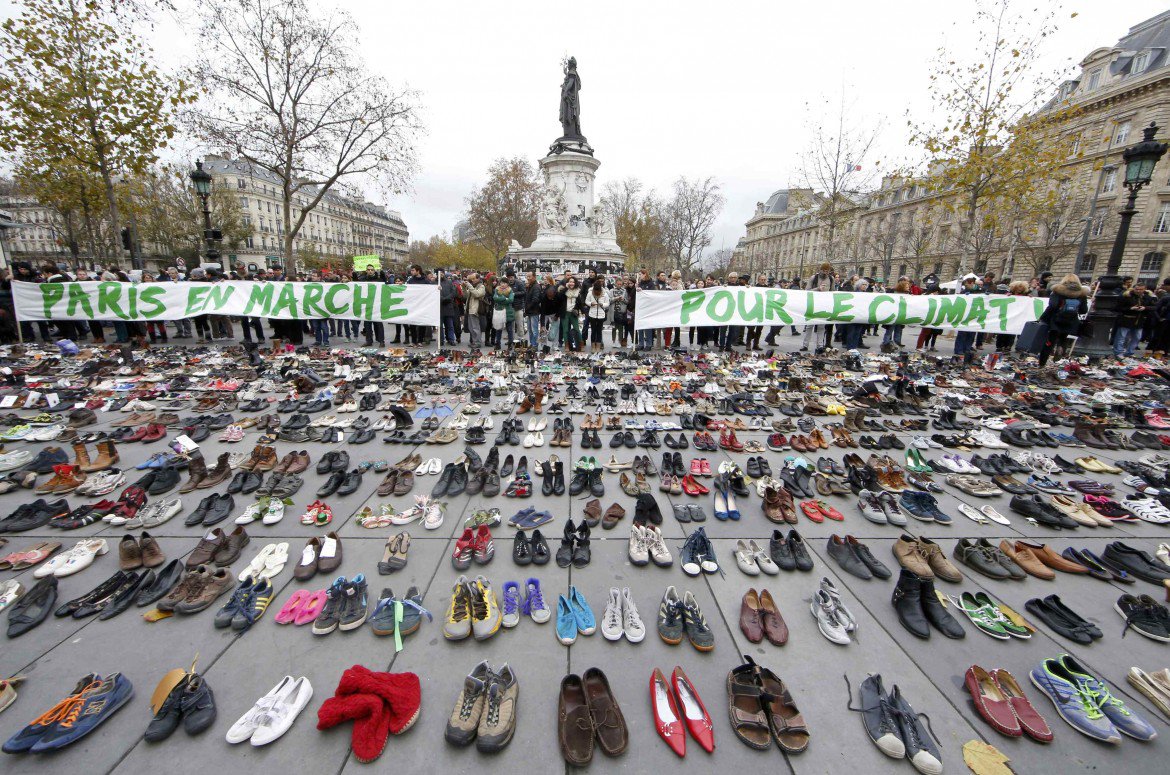COP21
France bans protests, places activists on house arrest
The state of emergency since the terrorist attacks in Paris is providing the cover for French authorities to target citizen activists and curb free speech during an important two-week climate conference.

As the 21st United Nations Conference on Climate Change commences today, the French government is cracking down on dozens of left-wing activists and environmentalists. The pressure on freedom of speech and expression is heavy as the targets have been obliged to register their home addresses and comply with curfews.
The purpose of the orders is clear: to prevent public protests at the climate conference, making it even more impossible for activists to approach the capital. A broader state of emergency bans all demonstrations.
COP21, as the conference is known, is widely considered the planet’s last chance to pass a binding resolution to curb greenhouse gas emissions before the earth warms to more harmful and irreversible levels. Previous attempts failed or have been ineffective. At a moment when the pressure of concerned citizens is most needed, their protests are quieted amid a concerted muffling of free speech.
Particularly affected by the restrictive measures is a group of activists protesting the construction of a new international airport in Nantes. Members of Defending Zone A, known by the French acronym ZAD, comprise a range of people, from militant environmentalists and anarchists to simple farmers who oppose the destruction of their land.
For supporting ZAD, the attorney Joel Domenjoud, also a member of the legal team for an assembly of 130 environmental NGOs critical of COP21, has been placed under house arrest until Dec. 12 — when COP21 concludes. The lawyer was summoned to a police station on Thursday morning and issued an order to stay home between 8 p.m. and 6 a.m. daily and to check in at the police station three times a day.
Six militants on the extreme left and ecologists in Rennes, about 60 miles from Nantes, have received similar commands. Sources close to the activists say one of the six was allegedly involved in clashes with security forces during a demonstration in Nantes, but the person was never investigated. The only connection to Domenjoud, apparently, is that they support the fight against the airport.
Interior Minister Bernard Cazeneuve justified restrictions on personal liberty by citing the threat to public order represented by people suspected of belonging to radical movements. The state of emergency, in which France will live for at least three months, allows such measures without the approval of a judge.
Even the French government itself wrote a letter to the E.U. Human Rights Council that it was going to derogate the European Convention on Human Rights. In other words, these human rights violations aren’t in dispute; France has admitted them.
“It is unacceptable that environmentalists have become the targets,” said Emmanuelle Cosse, secretary general of the Europe Ecology – The Greens political party. Greenpeace France said the same, and Stephan Oberreit, director of the French section of Amnesty International, said “the systematic ban on all events that have a link with the COP21 takes away a fundamental means of expression from all critical voices.” Even tougher is the president of the League of Human Rights, Françoise Dumont, who expressed deep opposition to the establishment of a state of perpetual emergency.
Meanwhile, as officials attending COP21 arrived in the northeastern outskirts of Paris yesterday afternoon, about 400 members of ZAD arrived to demonstrate against the conference. But they were miles away, on the other side of town near Versailles palace.
Originally published at on
